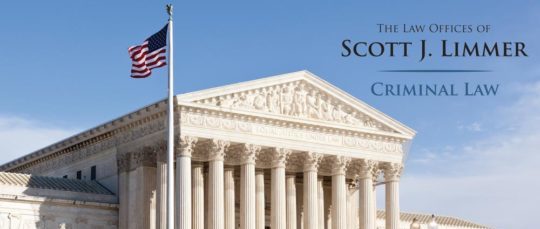The US Supreme Court, by a 6-2 margin, has thrown out a challenge to Colorado’s marijuana legalization brought by neighboring states Oklahoma and Nebraska. The high court has original jurisdiction to hear lawsuits in controversies among states. As is usually the case when it declines to take a case, the Court did not issue an opinion explaining its March 21 dismissal of Nebraska v. Colorado.
In the lawsuit originally filed in December 2014, the plaintiffs argued legalization of marijuana by Colorado voters in a 2012 referendum had created a “cross-border nuisance,” which brought more marijuana into their states and caused law enforcement headaches.
They also argued that since marijuana remains illegal under federal law (it’s classified as Category I under the Controlled Substances Act, since it’s seen as having a high potential for abuse and no accepted medical use), the Colorado law’s provisions regulating, licensing and taxing marijuana traffickers are preempted because they conflict with the U.S. Constitution’s setting up federal law as supreme in the nation, as well as a number of international treaties adopted by the federal government.
Last December, the US Department of Justice filed a “friend of the court” brief urging dismissal of the lawsuit. Solicitor General Donald Verrilli Jr. argued that Nebraska and Oklahoma did not have a dispute with Colorado, but instead with third parties who, because of Colorado’s law, are more likely to violate federal or state laws in other states – which, he claimed would amount to a “substantial and unwarranted” enlargement of the Court’s jurisdiction.
Two other states that have legalized personal use of marijuana, Oregon and Washington, jointly submitted a “friend of the court” brief, extolling the benefits of the federal system’s allowing state policy experimentation, and arguing that allowing such lawsuits could cut off such debates and different approaches.
Further, it distinguished the Colorado law from the Supreme Court’s traditional original jurisdiction cases, which ordinarily involved issues like state boundaries or division of shared water resources. The Colorado law did not involve conflicting sovereignty or property claims.
Two Justices, Clarence Thomas and Samuel A. Alito Jr., offered a brief dissent, however, saying they would have heard more about the merits of the case, rather than dismiss it summarily. They also called for revisiting the Court’s long position it has the discretion to decide whether to hear state-vs.-state lawsuits, saying they viewed the Court as being required to hear them.
Opponents of marijuana legalization contend the high court’s rejection of Nebraska v. Colorado does not preclude them from bringing a similar lawsuit in lower federal district courts, and say they’ll keep trying to invalidate state laws like Colorado’s.
Colorado was the first state to legalize recreational use of marijuana under state law, but Oregon, Washington, Alaska and the District of Columbia subsequently did likewise, and well over half the states had authorized medical use of marijuana. About a dozen states this year may also consider measures to authorize medical or recreational marijuana.
